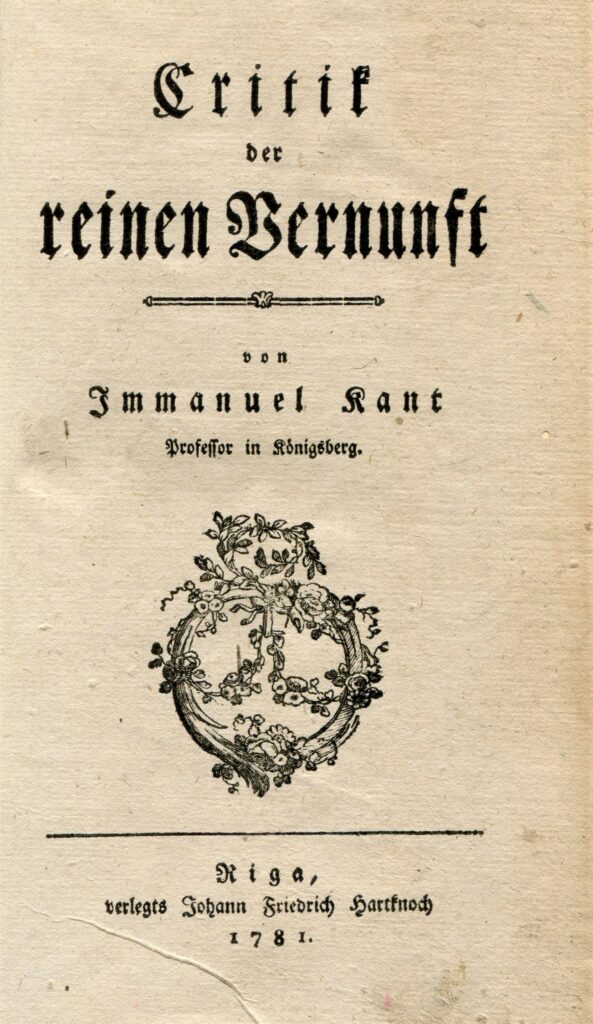
8vo, [xxiv], 856 pp. (426-461 unpaginated as usual, with the normal mispaginations: 672 for 673, 834 for 734, 835 for 735), contemporary half leather over marbled boards, rubbed, slight creasing to spine, uniform mild age-toning, some light marginal foxing and isolated spots, a very good copy.
‘Kant’s great achievement was to conclude finally the lines on which philosophical speculation had proceeded in the eighteenth century, and to open up a new and more comprehensive system of dealing with the problems of philosophy. The influence of Kant is paramount in the critical method of modern philosophy. No other thinker has been able to hold with such firmness the balance between speculative and empirical ideas. His penetrating analysis of the elements involved in synthesis, and the subjective process by which these elements are realized in the individual consciousness, demonstrated the operation of “pure reason”; and the simplicity and cogency of his arguments achieved immediate fame. Kant’s achievements in other branches of philosophy were equally distinguished and fruitful. His methods dominated western philosophical thought throughout the nineteenth century, as they do today’ (Printing and the Mind of Man226).
